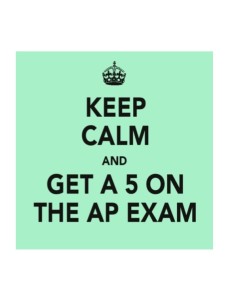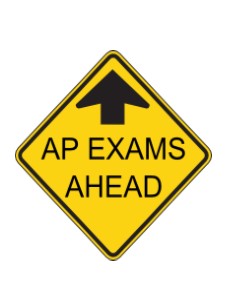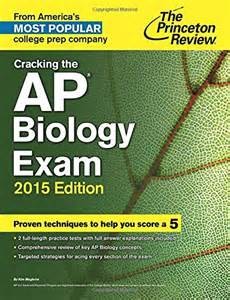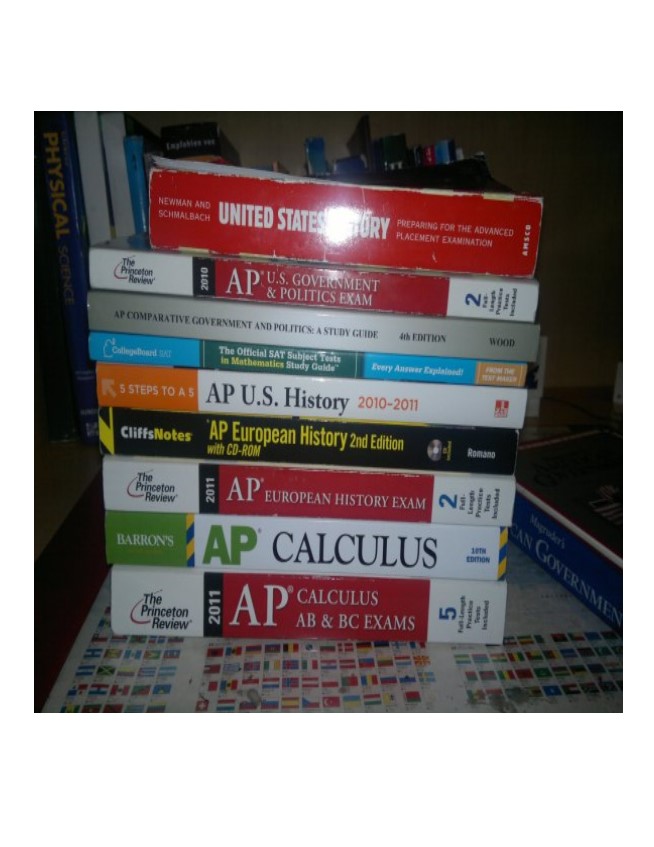By Cesay Camera
Amidst the stress of upcoming AP Exams, it is not uncommon for AP students to feel like giving up despite all the sleepless nights and early morning cram sessions endured, and lunch periods sacrificed with your peers. It’s May and you probably feel like you are running out of mental energy and willpower. However, although now is clearly a time to work your hardest, you will conserve energy and be more effective if you study in a strategic manner.
I interviewed several teachers who teach AP Classes at MCSM in order to gain a little insight into what the core curriculum of their class entails, and to request tips that might help students succeed on the exam. These teachers include Mrs. Raynes (BC calculus), Mr. Lee( AP Computer Science), Mr. Musialik( AP U.S. History) Mr. Morales( AP Spanish ) and Ms. Chiavola( AP English) Read on!
Initially, I asked each teacher subject-specific questions. Then below in Part Two you will see how each teacher responded to more general AP oriented questions.
Mrs. Raynes, BC Calculus Teacher
Q: You’ve taught BC Calculus for several years at MCSM. How often do exam questions in terms of style repeat themselves?
A: Section I multiple-choice questions cover all topics in the course. There are 45 questions in this part of the exam and since College Board releases these questions once in 5 years, I think questions repeat themselves every 5 years. Section II problems are released every year. They are different every year but they usually cover the same topics every year.
Q: Many students are very used to using calculators on Math Exams. What do you suggest AB and BC Calculus students do in order to be well prepared for the non-calculator portions of the exam?
A: They need to learn, understand, and review the concepts first. Understanding the Calculus concepts is very important.
Mr. Lee, AP Computer Science Teacher
Q: Technology continues to change rapidly and there are so many programming languages to specialize in. How does the AP Exam keep up with the ever-changing technology of the digital world, as well as developments in computer software?
A: Actually the AP Computer Science Exam doesn’t change that much. It’s been using Java for at least 10 years. You don’t have to worry about learning all the different languages, but if you know one really well, then it helps you to learn the others because the basic concepts are generally the same. It’s mostly just the syntax that’s different.
Q: Computer Science is a field that prizes creativity, and a fast-paced environment. How does your class embody these characteristics?
A: I try to use different technologies. I have a class website where students get the “do-now” and reminders about homework through Remind.com, which sends notifications to their cell phones and emails. I also I use a site called Blackboard, because in the computer lab it’s hard to see on the projector. On websites like CodingBat.com students can write, run and test their programs; they instantly tell you if there is something wrong, and you fix it. This is a way for students to practice by themselves. I don’t assign a lot of projects. It’s really about self motivation. Everyone has a different pace. Each student needs to figure out for him/herself what needs to be done without constant reminders from the teacher.
Mr. Musialik, AP United States History Teacher
Q: With changes in the structure of the exam, what do you think will be the most difficult aspect of the exam?
A: Students are expected to do too much in so little time. Also NYC Public Schools tend to start later than other school districts across the country, which makes it hard to finish the curriculum in time. Ideally this is supposed to be a two period course, where the first period is a lecture, and [during] the second period the students use primary sources in small groups and become investigative historians, and interpret history on their own.
Q: How often do you think the history questions change from year to year, and what is the cut-off year that the College Board tests up to?
A: The College Board doesn’t release the questions year to year. 95 percent of the questions on the test consist of U.S. History prior to 1980, and only 5% of the questions on the test are on [events] post 1980.
Mr. Morales, AP Spanish Language and Culture
Q: How much emphasis does the AP Exam puts on Writing versus Speaking, versus Comprehension?
A: Every portion of the test is equal [in emphasis], and because of this the exam is very demanding
Q: How exactly does the AP Exam test student’s understanding of Spanish Culture?
A: Students will get cultural documents that need to be analyzed and comprehended, and half of the test is multiple-choice. Students will also have to do formal presentations: A persuasive essay and a cultural comparison which deals with written documents, and reading comprehension.
Ms. Chiavola, AP English Language and Composition
Q: Describe what qualities you think those grading the essay(s) are looking for?
A: To have sophisticated language [skills], correct usage of rhetorical devices and an understanding of the task. They want to make sure students find the task and address it really clearly.
Q: What types of literary devices should students have in their repertoire in order to be successful taking the exam?
A: Students should definitely be familiar with ethos, logos and pathos, diction, syntax and analogy, and the types of speeches/ essays that exist such as: process, argument, or narration. From prep books, these are the ones that keep coming up. All of the literary and rhetorical devices are fair game though.
(PART TWO)
Q: How much different is the workload of the AP course than the Regents course load?
Raynes: The AP Calculus BC course is very intense and definitely the workload of this class is harder than for regular classes. “Harder” means more interest from the students and from the teacher, therefore more material can be covered, and to a deeper level. Students are supposed to spend 1-2 hours on homework, and it is their responsibility to check homework and analyze all mistakes. During the class, I do not have time to help/explain homework solutions like I am doing in Regents classes.
Musialik: Compared to [the] Regents course, they’re expected to learn in more detail within a shorter period of time. They’re expected to be more analytical and do more with the history than someone in the Regents course would, and also to interpret history on their own and come up with their own conclusions.
Morales: The AP course is for students that want to challenge themselves, and want to get credit for college. The difference is that the AP requires more work and involves more about Spanish culture than the Regents exam does. It is a college-level course that needs to fulfill certain requirements. However, in all courses listening, speaking, and writing are emphasized.
Chiavola: More work because students read at a much more intense pace. I don’t walk them through the essays because they’re much more open-ended. [For] the Regents essay you can teach students an outline, or give them an outline, but these [AP] essays require much more independence. Students need to be assertive and self-started.
Q: When preparing for AP exams there is a lot of content to be covered within the 45 minute time limit. Is it better for students to conceptualize the material then memorize it, or vice versa?
Raynes: Definitely learn, understand, and review concepts first. There is not much material to memorize in calculus: formulas for derivatives, integrals, convergence tests for series.
Lee: By the time they get to the review period they should have memorized. If they are not following the course throughout the year . . . it makes it harder to pass the exam.
Morales: I like students to be very creative. I teach students strategies to overcome struggles that they may encounter when they are in my class and they have to take the AP exam. By the time they take the exam they’ll have a lot of strategies. The grammatical rules of the Spanish language though, must be understood and implemented.
Musialik: I think it can be done both ways. It is a college-level course so if you’re expected to read primary and secondary sources on your own, and [to] interpret history that is brand new to you on your own, you should be able to do that.
Q: Many AP students juggle extracurricular activities, college prep programs, jobs and college classes. Students around this time of year are experiencing a lot of stress. What do you suggest they do now to cope with their stress, as well as to limit cramming when the exam comes around?
Raynes: Attempting to balance both AP classes and extracurricular activities is little bit stressful but rewarding because you get to have a social life while preparing for your future. According to the College Board website, students who can maintain good grades in rigorous classes while still participating in extracurricular activities will develop strong time-management skills. I would suggest managing your time by focusing on what you need to get done before using your phone or working out. Set out certain time periods dedicated to homework and extracurricular activities. The hardest part of advanced classes is that if you fall behind, it’s hard to catch up. So seek help if you need it on a regular basis, not just before the test or AP exam.
Lee: I think it was really important to use the spring break period when they didn’t have classes. If they haven’t gotten into college they still have to do that which is important. Students need to prioritize. It’s all about what’s important to them.
Chiavola: Set time limits to make sure they have time for everything without burning themselves out. Getting a goodnight sleep. If they’re not sleeping then they’re not really going to be of use in school or when they’re trying to study. Taking care of yourself, prioritizing and balancing. Cramming is only going to help so much.
Q: When the AP exam is over what do you think will be the most valuable thing your students will have learned?
Raynes: I think it is valuable if students can see how their knowledge of Calculus can be applied in real world. After the AP exam, I usually assign a project on real world problem-solving.
Lee: I hope they learn how to think logically, and to understand their thinking process. Programming is all about problem-solving. Students have to explain to the computer every single step in a way that is general enough to deal with different numbers but specific enough so that the computer doesn’t have to “think” because it can’t. Additionally, learning to think about what you think and all the steps you take to solve a problem and putting that into words is a skill I hope each student learns.
Morales: It’s funny because when students take the test they think the class is over. The cultural project that I assign after the exam involves so much. From my class they can take away strategies for taking a test; for enhancing their knowledge of the grammar rules of the Spanish language; for using language in more appropriate way; and for effective composition. Students can use what they learn in my class for all other core classes such as History, English etc. They can use the sources that we go over in class as a source on the AP English Literature and Composition Exam. Also students will learn to communicate better with people from other Hispanic countries.
Musialik: Note taking skills, how to write analytical essays, how to use evidence in primary sources, and argument/evidence-based writing.
Chiavola: They can look at language more critically, and recognize how people say things is just as important as what they’re saying.
Q: On the AP exam there often tends to be two seemingly right answers. What do you suggest students do on these types of questions?
Raynes: Solve the problem. Do not guess.
Lee: Use process of elimination. Try to figure out what could be the wrong answer. Substitute the answer into the question to see if one of them doesn’t make sense.
Musialik: Students should have familiarity with taking practice exams. They can recognize the “got-you” choice best by practice and in-class exams.
Chiavola: Go with your gut and trust your instincts.
Q: For students who have test-anxiety do you have any suggestions?
Raynes: To build confidence students should develop good study habits and strategies, manage their time (deal with procrastination, distractions, laziness), organize material to be studied and take a step-by-step approach to build a strategy and not get overwhelmed. To approach the exam with confidence, students should view the exam as an opportunity to show how much they’ve studied and to receive a reward for the studying they’ve done. [They should] use whatever strategies they can to personalize success: visualization, logic, talking to yourself, practice, team work, etc. Lastly, strive for a relaxed state of concentration by avoiding negativity or distractions, and get a good night’s sleep the night before the exam.
Morales: You do not have to be scared. Rest the day before. Have a nice energizing breakfast. Relax and concentrate before the test; you don’t have to study anything the night before.
Musialik: Calm down. Try your best. Save your notes. Even if you don’t do well on the exam, you can take the course again in college and can hopefully do much better
Chiavola: Implement habits such as Process of Elimination. Also, don’t live by the clock.
Editor’s Note: With AP exams coming up so soon, keep in mind why you are taking the class. Is it to gain college credit or to get a feel of “college level work”? Let your reason(s) for taking the exam(s) motivate the score you’d like to receive, and work towards it. Remember that your score on the AP exam is neither indicative of what you have taken away from the class, nor a fair quantitative measure of your knowledge on that specific subject, but rather what the exam creators expect you to understand.




